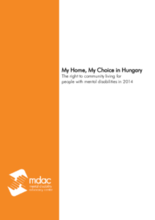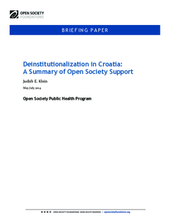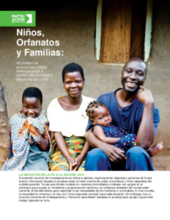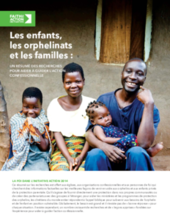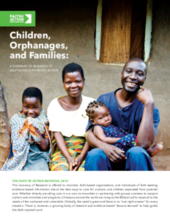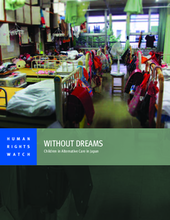Displaying 521 - 530 of 771
Despite Hungary signing on to the UN Convention on the Rights of Persons with Disabilities (CRPD), there has been no significant change in the number of people with disabilities in Hungary who are placed in institutions. Mass institutionalisation continues to be the predominant form of care for people--including many children--with mental health issues and intellectual disabilities.
This Masters thesis paper, by Michael Maher King of the University of Oxford, reviews the situations of children in institutional alternative care in Israel and Japan.
This video features a segment of a talk on the effects of care environments on children, hosted by the Christian Alliance for Orphans. The key speakers featured include Dr. Kathryn Whetten & Dr. Charles Nelson, who discuss the Positive Outcomes for Orphans study (POFO) and the Bucharest Early Intervention Project (BEIP), respectively.
The Heads of State of the Caribbean region endorsed the Call to Action to end the placement of children under three years of age in residential care institutions at the 35th CARICOM conference.
In this chapter of the Handbook of Child Well-Being, the authors review the findings from research on the cognitive and social-emotional development of children growing up in institutions, foster care and adoption.
This paper examines the benefits and challenges of de-institutionalizing disability residential services in Croatia through Open Society Foundation’s Mental Health Initiative (MHI).
El presente resumen de investigaciones se ofrece a iglesias, organizaciones religiosas y personas de fe que buscan información basada en pruebas sobre la mejor manera de cuidar a huérfanos y niños separados del cuidado parental.
Ce résumé sur les recherches est offert aux églises, aux organisations confessionnelles et aux personnes de foi qui cherchent des informations factuelles sur les meilleures façons de venir en aide aux orphelins et aux enfants privés de la protecti
This Summary of Research provides a concise overview of a range of studies and findings that can inform approaches to caring for children who, through orphanhood, abandonment, or other causes, have been separated from parental care.
This report by Human Rights Watch examines Japan’s alternative care system for children. It describes its organization and processes, presents current data on the use of different forms of alternative care and highlights the problems found in the institutionalization of most children (including infants), as well as abuses that take place in the system.

